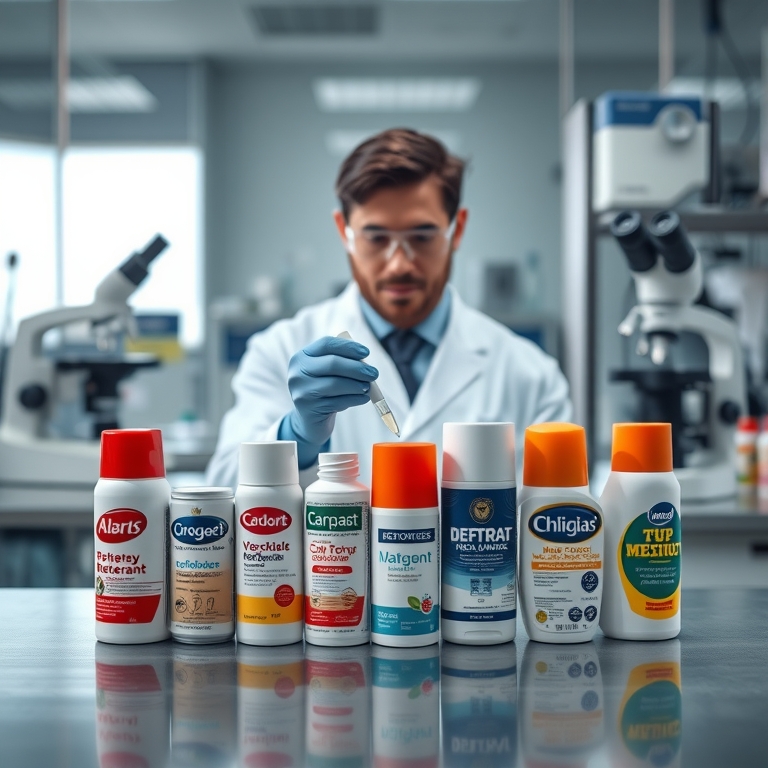In an unprecedented move that has sent ripples through the personal care industry, the U.S. Food and Drug Administration (FDA) has initiated a sweeping recall of several popular deodorant brands over concerns about chemical contamination. This recall, announced on Friday, comes after a series of tests revealed the presence of potentially harmful substances in certain batches of these widely-used products. As the news unfolds, companies and consumers alike are grappling with the implications of this significant regulatory action.
The recall targets several well-known deodorant brands, which have been household staples for years. The FDA’s decision follows an extensive investigation prompted by consumer complaints and subsequent independent laboratory analyses. These analyses detected the presence of benzene, a chemical compound that is classified as a human carcinogen. Benzene is not an ingredient in deodorant formulations, which raises questions about how it found its way into these products. The contamination is believed to have occurred during the manufacturing or packaging process, though the exact cause remains under investigation.
Benzene is a volatile organic compound that, when inhaled or absorbed through the skin, can pose serious health risks. Long-term exposure to benzene is linked to an increased risk of developing leukemia and other blood disorders. The FDA’s swift action reflects the severity of these potential health hazards and underscores the agency’s commitment to consumer safety.
The companies affected by the recall are now facing a challenging landscape. They must address not only the immediate logistical concerns of removing contaminated products from shelves but also the broader reputational impact. In a market where trust and brand loyalty are paramount, the specter of chemical contamination can have lasting consequences. Many of these companies have already issued public statements, expressing their commitment to consumer safety and pledging to work closely with the FDA to resolve the issue promptly.
For consumers, the recall has sparked a wave of concern and confusion. Deodorant is a daily essential for millions, and the idea that something so routine could pose a health risk is unsettling. The FDA has urged consumers to check their deodorant products against the list of recalled items, which is available on the agency’s website. Those in possession of affected products are advised to stop using them immediately and follow the instructions provided by the manufacturers for refunds or replacements.
The recall also raises broader questions about the safety of personal care products and the regulatory frameworks that govern them. In recent years, there has been growing consumer awareness and scrutiny regarding the ingredients in cosmetics and personal care products. This incident is likely to intensify calls for stricter oversight and more rigorous safety testing. Advocacy groups have long argued that the cosmetics industry, governed by the Federal Food, Drug, and Cosmetic Act, operates with relatively lax regulations compared to other sectors. They point out that while the FDA has the authority to regulate these products, it does not approve cosmetics before they go to market, relying instead on manufacturers to ensure safety.
In response to the recall, some lawmakers have reiterated their calls for legislative reform. They argue that incidents like this highlight the need for a stronger regulatory framework that includes mandatory safety assessments and more robust post-market surveillance. Proposals for reform have included measures such as requiring manufacturers to register their products and ingredients with the FDA, mandatory adverse event reporting, and the establishment of safety standards for contaminants like benzene.
From an industry perspective, this recall could serve as a catalyst for change. It presents an opportunity for companies to reevaluate their manufacturing processes and supply chain practices. Ensuring product safety in a globalized supply chain is complex, and this incident underscores the importance of stringent quality control measures at every stage of production. Some companies may choose to invest in new technologies or partnerships to enhance their safety protocols and restore consumer confidence.
The recall also has implications for investors and analysts following the personal care sector. Shares of the affected companies may experience volatility as the market reacts to the news. Analysts will be closely watching how these companies navigate the crisis, manage public relations, and implement corrective actions. The long-term impact on market dynamics will depend on how swiftly and effectively the industry addresses the root causes of the contamination and communicates these efforts to stakeholders.
As the investigation continues, the FDA has pledged to keep the public informed about any new developments. The agency is working with the manufacturers to identify the source of the contamination and prevent future occurrences. Meanwhile, consumers are urged to remain vigilant and informed, checking for updates and guidance from both the FDA and the companies involved.
In conclusion, the FDA’s recall of deodorant brands over chemical contamination concerns is a significant event with wide-ranging implications. It highlights the critical importance of product safety and regulatory oversight in the personal care industry. As companies, regulators, and consumers navigate the fallout, the focus remains on ensuring that such incidents are prevented in the future, safeguarding public health and maintaining trust in everyday products.

Leave a Reply